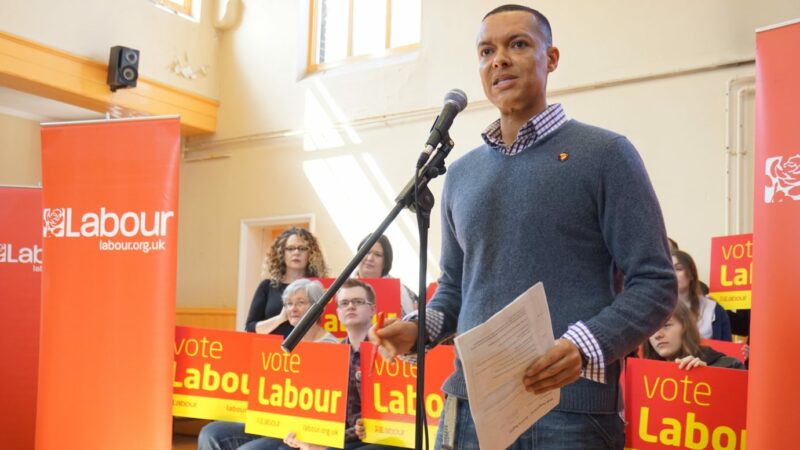
How often have we heard the notion that somehow liberty is an integral part of the English character? That we fortunate few in this country are somehow different from the rest of humanity. Not for us authoritarianism, or autocracy, or god forbid the dark slide into fascism. No – that’s for other people. Other countries. Not us.
Well, today, in the second reading debate on the police, crime, sentencing and courts bill, we grappled yet again, with yet another bill from this government stripping the people of this country of yet more liberty and more of their democratic rights.
English exceptionalism is a dangerous fallacy. None more so than when it comes to the constant vigilance required of any democracy. It’s hubris of the first order – one I fear has infected the government.
The potential for a slide into authoritarianism and worse is, as history has clearly demonstrated, part of the human condition. That is the painful and bloody lesson we must learn from the 20th century.
And yet here we are, with this bill before us. It is the tip of an authoritarian iceberg – one that’s on a collision course with public defiance. Democracy is being swept away, in a calculated programme to leave the public muted and powerless.
We see this in the demonisation of the Gypsy, Traveller and Roma community as a cover to introduce the criminalisation of trespass. We see it in the planned voter suppression bill, which will strip the right to vote from Black and other disadvantaged communities, adding yet another barrier to exercising the right to vote.
We also see it in plans to limit judicial review, which will restrict the ability of the public to challenge the government’s decisions in court, shifting yet more power to the executive.
We saw it in the overseas operations bill, too. The creation of a two-tier, ‘them and us’ system of human rights was something I could only ever reject in the strongest possible terms. Having now passed that, the government is coming for our rights – with a review of UK human rights legislation.
These are rights that have already been eroded these past 40 years and handed to large, opaque vested interests, both individual and corporate. This is the crisis of democracy.
In the debate, I told the benches opposite that I see how they are fast moving from becoming a government to becoming a regime. They want to stifle dissent, so they are not accountable to the public.
Our country – our economy, our politics, our media – is controlled by a small clique of individuals. Over the last 40 years, they have taken more power for themselves at the expense of our democracy. Now they are not even happy with us clinging on to the scraps we have now.
To our own Labour frontbench, who were finally brought to the right position of opposition to this bill, I have this to say: it should not have taken the police assault on people gathered peacefully in memory of Sarah Everard to see the assault on democracy in this bill. It is writ large.
Let this be a wake-up call. We have never seen anything like this government before. If this bill goes through, anyone who values their democratic rights must get organised and fight back. I will stand with protesters, irrelevant of the laws passed by the House of Commons.
I have an appeal to make everyone who wants to live in a democracy – friends from across parties in parliament, in civil society, in trade unions, the public, please: we must face the reality of the scale of action demanded by challenging the authoritarianism of this government and responding to the climate and ecological breakdown, epidemic of inequality, surveillance capitalism, automation, and AI.
We must break out of the 20th century political silos that have proven unfit for 21st century challenges. We must create a democracy that is fit for purpose for the challenges we face: climate and ecological breakdown, the epidemic of inequality, and surveillance capitalism.
That means a voting system where each vote counts equally, a fusion of direct and representative democracy, where people lead and act collectively, real power and resources distributed to communities, away from Westminster.
I do not have the answers, but I believe the public does. So the future must not be imposed; it must deliberated on in a people’s convention on the UK’s constitution.
Proportionate action now demands an alliance of progressives both cross-party and wider civil society. If you want more democracy, not less, democrats must work together to remove power away from these aspiring authoritarians and give it over to the people of the UK.




More from LabourList
A year in power: The cabinet on their proudest wins and favourite moments
‘One year on, Labour still hasn’t reckoned with collapsing trust in politics’
‘I’m the Labour MP who beat Liz Truss. Here’s how the campaign to unseat her unfolded’